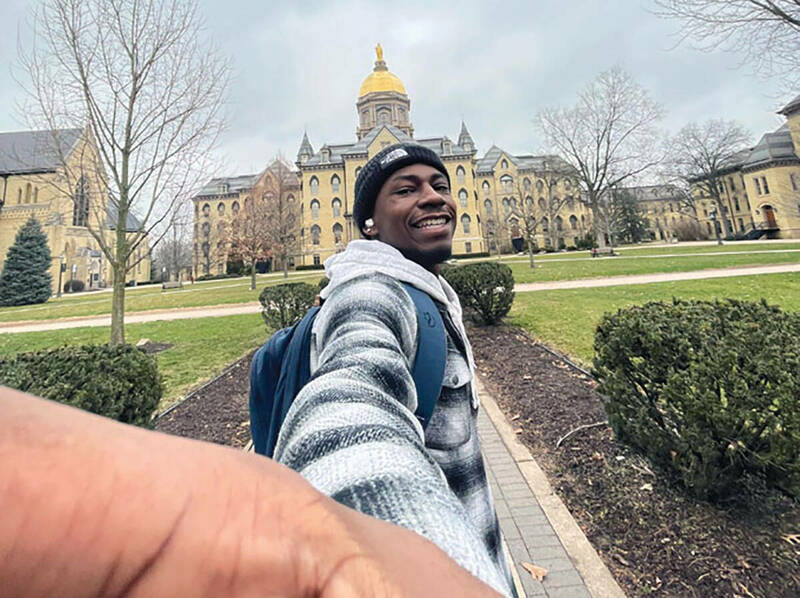 Daymine Snow is a junior and first-generation student with a major in business analytics and a minor in digital technologies. He was recruited to Notre Dame through the Posse Foundation scholarship program.
Daymine Snow is a junior and first-generation student with a major in business analytics and a minor in digital technologies. He was recruited to Notre Dame through the Posse Foundation scholarship program.
Notre Dame undergraduates grab their backpacks, visit the dining hall and walk to class. Later they’ll head to Hesburgh Library or their residence halls with a pile of homework to tackle. Such scenes have played out on campus for generations.
But student life has changed dramatically, too.
How so? What do current students want us to know about their lives?
To find out, Notre Dame Magazine conducted interviews with a cross-section of eight students from geographically dispersed hometowns, assorted fields of study and a range of socioeconomic backgrounds.
Each one was asked a series of questions about their college years and the challenges young adults are facing today. They candidly described their challenges, successes, worries and hopes for the future, a constant state of being busy, a compulsion to fill every second of every day accomplishing things inside and outside the classroom.
They confirmed that Notre Dame’s residence halls remain vibrant communities where forever-friendships may be forged. Social media — especially Instagram, Snapchat and TikTok — are ubiquitous forces in their lives.
Minority students talked about sometimes being the only student of color in class discussions about social issues and the feeling that they’re expected to speak on behalf of their communities.
Several students recalled a rocky first year — not feeling at home or finding a true friend group until they were sophomores. One woman recounted a bout of impostor syndrome as a first-year student, when she often asked herself: “What am I doing here? Do I really belong?”
Nearly all mentioned stress and other mental-health challenges prevalent today.
These students are members of Generation Z, people born in the late 1990s and 2000s. While Gen Z grew up with the internet, the students express some reservations about how social media and being constantly online are affecting their generation and society in general.
We let them speak for themselves, though their remarks have been edited for length and clarity. Here’s what they had to say:
How are your college years going?
Soza: “Notre Dame is definitely the right place for me. I had that feeling after the first month here. I’ve gone to Catholic school since kindergarten, but Notre Dame is a different type of Catholic environment.” He feels immersed in an authentic, fully committed faith community on campus.
Snow, who had not visited campus before arriving as a first-year student from New Orleans: “It’s been a mixed experience for me, but I’m making the best of it. I’ve been given the opportunity to excel academically and professionally. . . . This was the first time I was like a very small percentage [racially] of the campus. That was unfamiliar territory.”
Mendez Ramirez: “This year, everything’s been going well for being at a school that’s so rigorous and academically challenging. Last year I was having a bit of a struggle. It was a little harder for me to feel like I had a support system, since I feel like I’m so different from the majority of my peers here.”
Ashman: “Really good. I think that Notre Dame is the right place for me. It’s definitely been a crazy process coming to that conclusion. If you had asked me the same question freshman year, you probably would have gotten a way different answer.”
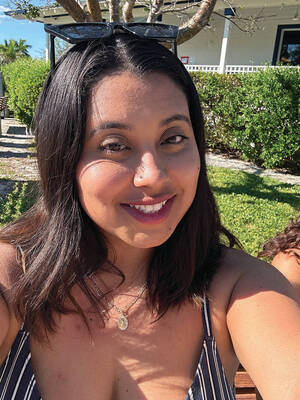
I’m optimistic/pessimistic about the future because ________.
Bollman: “Optimistic. From a viewpoint of faith, it’s in God’s hands. There’s plenty of good things going on.” And a bit of pessimism: “The polarization that we see in our country and the breakdown or rejection of a lot of traditional values.”
Zurek: “Optimistic. I have confidence in my generation and my peers, in the sense that I think we will be good leaders and invoke change.”
Soza: “I’m optimistic because of all of the different opportunities and experiences to learn and grow at Notre Dame. And the committed Catholicism at Notre Dame is awesome to see. The biggest part of my experience has been reinvigorating my faith life.”
Condon: “In the short term, I’m a little bit pessimistic, but in the long term I’m optimistic. There’s a lot of negativity bias right now in terms of current events in the world, and I think that’s a kind of self-fulfilling prophecy to a certain extent.”
Where did you meet your best friends?
Bollman: “We met by happening to sit next to each other in our very first class freshman year, which was 8 a.m. Monday . . . in our Foundations of Theology class.”
Snow, who has made his closest college friends through The Wabruda, a club for African American men: “It’s a brotherhood for me, and that’s where a lot of my friends are now. It provided me mentorship freshman year. It was a hard time adjusting to this new environment.”
Where on campus do you feel most comfortable and at home?
Bollman: The Grotto, her residence hall, the Basilica of the Sacred Heart, the lakes and the area near the Golden Dome.
Snow: On the bank of Saint Mary’s Lake. “I’ll go there and read. Sometimes I just sit there and reflect. It gives me time to feel at peace.”
Mendez Ramirez: Her residence hall and the Transformational Leaders Program lounge in the Main Building.
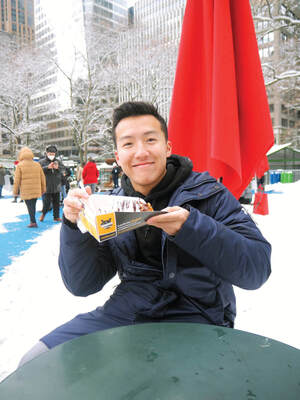
Aside from classwork, how much time do you spend per day online or using social media?
Ashman: “An hour at most. . . . It can be so toxic just to scroll through and look at a bunch of strangers and what they’re doing.”
Bollman: “I don’t use social media. I never have.”
Snow: “I just checked, and it was an average of five hours a day. That’s steep. It was spread out with me checking Canvas [a course management system] for assignments, but I spend a large amount of time on Instagram, Twitter and YouTube. Those are the three biggest things that distract me. I stay away from TikTok, because it’s too addictive.”
Soza: About an hour a day, and he isn’t active on social media. “Fear of missing out — that’s a sacrifice I was willing to make because of other consequences that go along with excessive social-media use.”
Zurek: “Definitely way too much. Probably two hours a day, and I might be lowballing it. If I’m bored, I just hop [online].”
How important is religion or spirituality in your life?
Bollman: “I’m Catholic, and that was a big part of the reason why I chose to come to Notre Dame. I wanted [a place with] really good academics and that would be nourishing to faith as well. Notre Dame was really the only place that matched that.”
Snow: “I’m Baptist. I’m not extremely religious, but I’m not NOT religious. I feel like I fall in the middle.” He doesn’t attend Catholic Masses on campus. “I feel like it’s not my place to be attending a religious service that’s not for my religion.”
Zhang, who is a non-denominational Christian: “I’m a quite religious person. I’m still trying to figure out what Christianity is to me. Limiting myself to a certain denomination feels wrong at the moment.”
Soza: Very important. His Catholic faith is a constant in his life, including prayers before meals and attending Mass several times a week.
Mendez Ramirez: “Religion only recently became more important in my life. When I got here, I was Catholic on paper, but I wasn’t really practicing.” At Notre Dame, she’s started regularly attending Mass and received the sacrament of Confirmation in the spring.
Condon: “Not very. I was religious earlier in life and raised Catholic.”
Zurek, a Catholic who grew up in a predominantly Jewish community: “Before coming to Notre Dame, it wasn’t that important for me. Now something I look forward to is weekly Mass with my friends. My religion and spirituality have definitely grown a lot since coming to Notre Dame.”
Ashman, who is Protestant: “Very important. Here I’ve been able to understand and develop my religion and spirituality and belief system.”
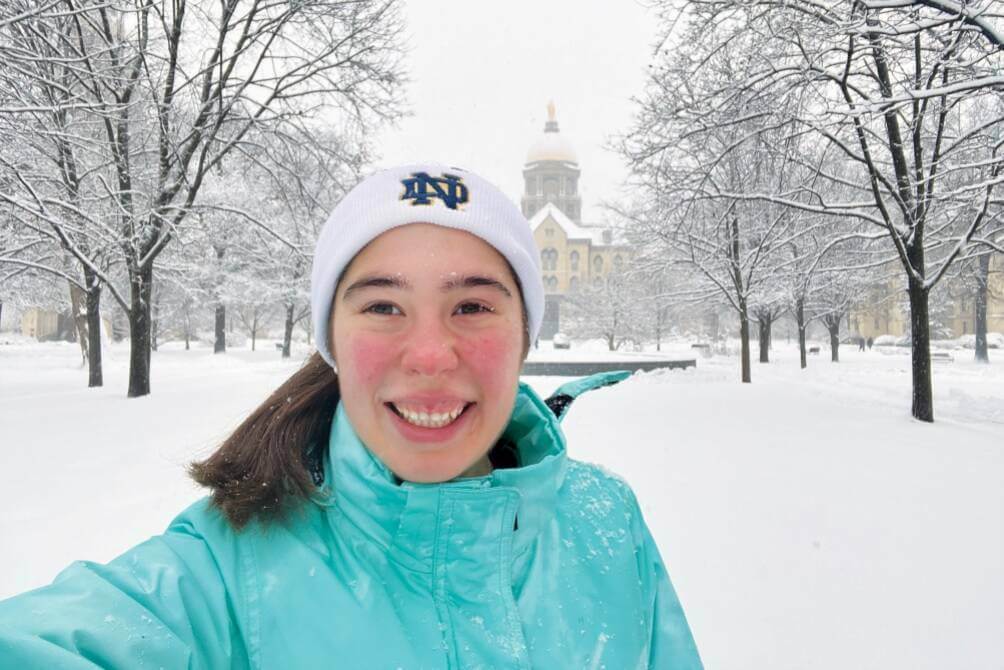
What is the biggest challenge facing the nation today?
Zhang: Gun violence.
Ashman: “Inequalities that arise based on people’s identities — racial, ethnic, nationality or religion.”
Bollman: “Post-Dobbs [the 2022 U.S. Supreme Court decision], we’ve seen a lot more polarization on the topic of abortion. I would signal that as number one. And not being able to talk across the aisle to people of other opinions.”
Snow: “Misinformation that’s spread through the internet.”
Soza: “The inability to understand where other people are coming from and why they believe what they believe. I feel as though people on the more conservative side tend to have a better understanding of how the progressives ended up at their side. If you don’t really understand where the other side’s coming from, there’s no real opportunity for a compromise, and you just end up yelling at each other.”
Mendez Ramirez: “Polarization. It’s gotten to a point where we can’t even talk to one another. But I have a rule that I’m not going to shut someone else down until I hear their side and their beliefs.”
Zurek: “Understanding what other people are going through. We are such an individualistic nation that everyone kind of prioritizes themselves and their own problems, which is natural for any human being.”
Condon: “Polarization. It’s hard to tackle any other issue if you can’t find common ground.”
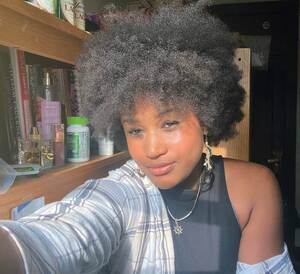
What is the biggest challenge facing college-age people today?
Ashman: “There’s a really toxic culture of ‘work hard, play hard,’ which might not be a thing at every college.”
Bollman: “How busy everyone is. You feel like you have to always be doing something.”
Zhang: Sexual assault and mental health.
Snow: “Procrastination or distractions due to technology and everything we have at our fingertips. It is easy for us to get off track and not stay up on our work.”
Soza: The credentialing culture, materialism and getting an impressive job and salary. “There’s no common understanding of what a fulfilling life is. It used to be that you would get married, you’d have a family, and your goal was to be able to provide for your family. And then at some point you became a grandparent. Now there’s much more of an emphasis on me, me, me.”
Mendez Ramirez: “Especially at a school like this one, you have to have the highest paying job. You have to have the best job. You can’t just be an employee — you have to be the CEO.”
Zurek: “Social media and mental health. Social-mediawise, there’s a lot of opportunity to compare ourselves to other people. That can be extremely detrimental for self-confidence but also mental health.”
Condon: “There’s such an excess of information and things you have to think about before becoming an adult nowadays, it’s kind of hard to navigate.”
‘. . . the committed Catholicism at Notre Dame is awesome to see. The biggest part of my experience has been reinvigorating my faith life.’ —John Soza, a junior finance manor with minors in constitutional studies and theology. He’s an active member of the Knights of Columbus and served as a residence-hall representative in the Student Senate.
Where do you get most of your news about campus, the nation and the world?
Mendez Ramirez: Campus emails and Instagram. “For news outside of campus, I will probably get the initial glimpse on social media and then do my own research. I know that social media isn’t necessarily a trusted source of information.”
Bollman: The Irish Rover, campus posters and sometimes The Observer. “For nation and world events — talking to friends and family. I usually assume if it’s big enough, I’ll hear about it.”
Zhang: Emails and social media. “My first source of news is usually social media, then I’ll look up more information [about the topic] online.”
Snow: Social media, campus e-newsletters and word of mouth. “Outside of the Notre Dame bubble, in the rest of the world, primarily through social media. I’ll take a break from studying and be like, ‘Let’s see what’s trending on Twitter today.’ I also watch a lot of CNBC and their reports on economic events.”
Soza: He follows some individuals on Twitter but doesn’t post, and sometimes reads The Wall Street Journal, FoxNews.com and news aggregation websites.
Zurek: “I get a lot of information from social media. It’s so easy just to scroll and see some small piece of information. I’ll see a headline that I’m intrigued by, then I’ll research it further.”
Condon: “On campus, social media. For the nation and world, I go to The New York Times, The Wall Street Journal and The Economist. And to a certain extent, Twitter.”
Ashman: Twitter, Instagram, conversations with friends, The New York Times, CNN and NPR.
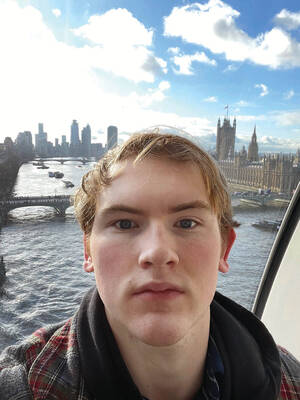
Did you choose a major based on your personal interests, or because it likely will provide future financial security, or both?
Snow: “A little bit of both. My freshman year, I thought about going into finance, but I wanted to do something more tech-based.”
Bollman: Personal interests.
Soza: “I applied to Mendoza [College of Business] because I thought it was the place where I was going to get the most career-applicable education. The two minors I have — theology and constitutional studies — are purely based on my interests and because Notre Dame has excellent faculty in both of those fields. With finance, it was probably more the financial security part rather than personal interest.”
Mendez Ramirez, who started a science preprofessional studies major, then switched to political science and psychology: “My first year I chose pre-med because I really wanted to be the (first-generation) success story. Financial security definitely drove part of that. And I realized I just didn’t like it. Then I chose political science because I am really interested in politics.”
Condon: Both.
Ashman: “Personal interests. The business economics minor is kind of tacked on for financial stability.”
Zurek, who intends to become a lawyer: “I hope to do something that will actually help people and make a difference. But I also think it’s nice to have some financial security.”
Do you ever feel uncomfortable in classes talking about historical topics such as slavery or more current issues such as racism or inequality?
Soza: “Potentially. Some of it just depends on where the conversation is heading. I’m not the person in class to be the first one to raise my hand to share my thoughts. I might have an answer at the beginning, but I think about it. I’m more concerned about: ‘I understand the point that you’re making, but have you considered this point?’”
Ashman: “I have the advantage of being in the humanities and social sciences. Everybody’s kind of cognizant of these issues in one way or another.”
Zhang: “To an extent, I think the concept of ‘cancel culture’ is good. You’re exposing people for things that they’ve done that are objectively wrong. In practice, in the extreme form of it though, it censors people from saying what’s on their minds due to fear of being ‘canceled.’ There is an inherent discomfort in discussion-based classes when you talk about these topics. I definitely feel that discomfort to an extent.”
Snow: Yes, particularly when topics such as race or diversity are being discussed in small classes. “Basically, I was the only Black student in the room. All eyes are on me and [I feel] I have to represent my group. It just makes me feel uncomfortable.”
Zurek: “If the subject is uncomfortable, at least for me, I almost enjoy talking about it because then I can expand my knowledge. . . . In my hometown, I feel like a lot of people had the same beliefs. Coming to Notre Dame, I have been confronted with different points of view.”
Bollman: No.
Condon: “I wouldn’t say uncomfortable. I think it’s actually really interesting, but I’m definitely hesitant, especially being a person with a background such as mine: a white guy that comes from relative privilege. You worry about coming off the wrong way.”

Do you ever self-censor your views in classroom discussions or casual conversations?
Condon: “I wouldn’t say something that I didn’t think, but I probably would refrain from saying something in general if I was worried about the way that it was going to be taken.”
Ashman: “I’ve never really felt the need to self-censor.”
Bollman: “In a politics class, we did one day on critical race theory. I didn’t really feel like I could voice my opinion there. . . . I wasn’t in agreement with what was being said, but I hadn’t thought about it enough to be able to respond in a constructive manner.”
Snow: “Yes. I feel like I code-switch [modifying speech and behavior to adapt to different norms] a lot. I feel like I can’t be my authentic self. I’m unapologetically Black when it comes to expressing myself in my dorm. Sometimes people will just put their heads down and walk by, like they don’t know how to interact with this person.”
Soza: “Probably not in classroom conversations. It depends on the audience with some of the casual conversations.”
Zhang: “I self-censor when I’m talking with people I don’t really know. I don’t want to come off in a way that they misinterpret what I’m trying to say. In class, I try not to, because it’s an educational setting.”
Zurek: “This is probably me wanting to be a lawyer, but I honestly love a good argument.”
If you had the chance to meet middle-age you, what’s the first question you would ask?
Soza: “What is the biggest mistake that you made and what would you have done differently?”
Snow: “What does my family life look like? Because I really want to be a family man. That kind of goes back to how I was raised. I was raised by a single mother. I want to be there for my kids.”
Condon: “What does my work-life balance look like?”
What do parents, professors and alumni not understand about the lives of today’s college students?
Ashman: “Sometimes there can be a misunderstanding between us and our professors. Yes, school is our main priority and everything, but also there’s a lot of pressure to be doing other things and to be involved in other things.”
Bollman: “How addicted we are to social media or how hard it is to get away from it.”
Snow: “How technology and society affect our mental health. From my interactions with my family and other adults, when it comes to mental health, it seems like [older generations] don’t talk about it as much as our generation does.”
Zurek: “The stress. . . . It’s sometimes difficult for them to totally understand the balance of social [expectations] and academics at Notre Dame.”
Zhang: “They don’t really understand the ‘work hard, play hard’ type of lifestyle, which is how most college students would describe themselves. Also, whenever older generations think about social media or other developing technologies, there’s a negative connotation to it. I wish they could see the potential of it, too.”
Condon: “How many voices are in our ear — whether from the internet, from [adults] or from our friends. All the resources we have are a blessing, but it makes the world a little bit more difficult to navigate in terms of making decisions for yourself and feeling good about that.”
Soza: “The pressure that gets put on college students by the elders of society. I didn’t really have that pressure from my parents [about such matters as test scores and which college to attend]. . . . But being around other people that had those pressures just creates that feeling of pressure on yourself.”
Margaret Fosmoe is an associate editor of this magazine. mfosmoe@nd.edu or @mfosmoe.